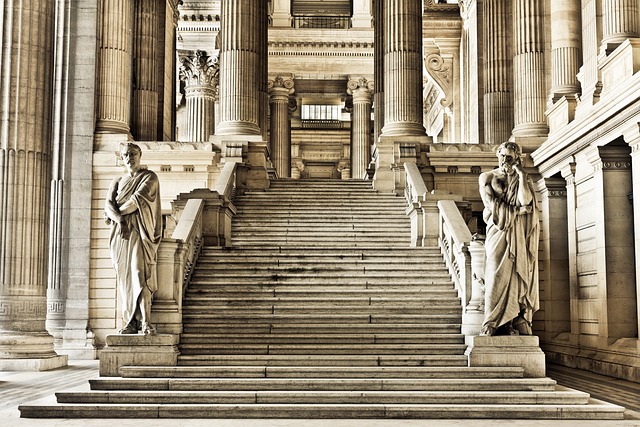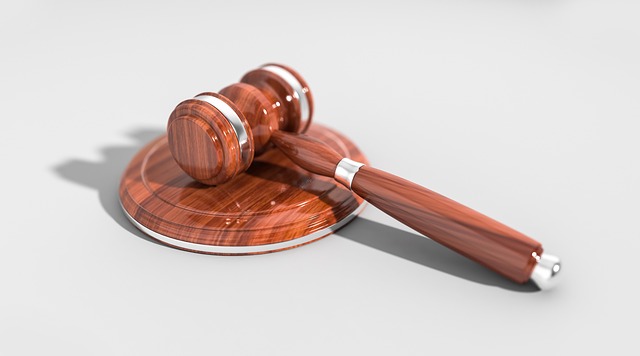Healthcare providers face significant legal challenges related to patient privacy, security, and consent under strict regulations like HIPAA. Common issues include data breaches, insufficient consent, and medical malpractice, requiring robust security measures, staff education, and adherence to evolving laws. Informed consent is crucial for avoiding disputes, while medical malpractice cases demand meticulous proof and skilled legal representation. End-of-life care poses ethical dilemmas, necessitating balance between patient autonomy and medical ethics, with high-stakes verdicts at play. Understanding these common legal issues in healthcare regulation is vital for providers and attorneys to navigate complex matters effectively while upholding patient rights.
Healthcare, despite its noble pursuit, is not immune to legal complexities. This article delves into four prevalent legal issues shaping the healthcare landscape: privacy and confidentiality of patient records, informed consent and patient rights, medical malpractice and liability, as well as ethical dilemmas and end-of-life care decisions. Understanding these common legal pitfalls is crucial for navigating the intricate web of healthcare regulation.
- Privacy and Confidentiality of Patient Records
- Informed Consent and Patient Rights
- Medical Malpractice and Liability
- Ethical Dilemmas and End-of-Life Care Decisions
Privacy and Confidentiality of Patient Records

The privacy and confidentiality of patient records are paramount concerns in healthcare. Healthcare providers have a legal obligation to protect sensitive medical information, as outlined by stringent regulations like HIPAA (Health Insurance Portability and Accountability Act) in the United States. Violations can lead to severe consequences, including financial penalties and damage to the provider’s reputation. Common legal issues in healthcare regulation center around breaches of confidentiality, unauthorized disclosure, and failure to obtain proper patient consent for data sharing.
Ensuring these protections is crucial not just for his clients but for maintaining the trust between healthcare professionals and their patients. Healthcare organizations must implement robust security measures and policies to safeguard records, train staff on privacy best practices, and stay abreast of evolving legal requirements. Winning challenging defense verdicts in such cases requires a deep understanding of both medical ethics and regulatory frameworks, demonstrating that respect for patient confidentiality is an integral part of respective business operations.
Informed Consent and Patient Rights

In healthcare settings, informed consent is a cornerstone principle that empowers patients to make autonomous decisions regarding their treatment. This process involves providing patients with comprehensive and understandable information about their medical condition, proposed procedures, risks, benefits, and alternatives. Achieving extraordinary results in legal disputes often hinges on whether the healthcare provider has obtained valid informed consent from the patient. A general criminal defense strategy may not be sufficient when addressing common legal issues in healthcare regulation, as specific knowledge of patient rights and ethical obligations is paramount.
Patient rights encompass a range of protections designed to safeguard their autonomy, privacy, and well-being. These rights include the freedom to accept or refuse treatment, access to accurate medical information, confidentiality, and the right to make decisions free from coercion or undue influence. Healthcare providers must navigate these delicate matters while adhering to strict legal frameworks. For his clients involved in healthcare-related litigation, a robust understanding of informed consent and patient rights is essential for building robust defenses or pursuing just outcomes.
Medical Malpractice and Liability

Medical Malpractice and Liability are among the most common legal issues within healthcare regulation. These cases arise when a patient’s harm is caused by a healthcare provider’s negligence or deviation from accepted standards of care, leading to severe consequences including permanent disability or even death. The complexity of these matters lies in proving causation and determining liability, often requiring extensive medical expertise and careful documentation.
In high-stakes cases, where significant damages are sought, the defense strategies can be fierce, with insurance companies employing winning challenging defense verdicts as a key goal. Jury trials in such scenarios become crucial battlegrounds, demanding thorough preparation from legal experts to navigate the intricate web of healthcare regulations, medical evidence, and patient rights, ultimately aiming for favorable outcomes amidst intense scrutiny.
Ethical Dilemmas and End-of-Life Care Decisions

In the intricate world of healthcare law, ethical dilemmas and end-of-life care decisions present some of the most complex common legal issues in healthcare regulation. Healthcare professionals often face difficult choices that require a delicate balance between patient autonomy and the best interests of the individual, as well as societal norms and medical ethics. For instance, discussions around advance directives, living wills, and durable powers of attorney can be emotionally charged and legally intricate, requiring meticulous attention to detail and an understanding of both state and federal laws.
These high-stakes cases not only involve winning challenging defense verdicts but also navigating the nuanced landscape of patient rights, privacy concerns, and quality of care standards. Avoiding indictment in such scenarios is paramount, as it requires healthcare providers and legal teams to be vigilant in adhering to best practices, ensuring comprehensive documentation, and fostering open communication channels. The stakes are high, and the consequences can be far-reaching, making ethical decision-making a cornerstone of effective healthcare regulation.
In navigating the complex landscape of healthcare, professionals must be well-versed in common legal issues such as patient privacy, informed consent, medical malpractice, and ethical dilemmas. These regulations are crucial for ensuring patient rights, fostering trust, and maintaining high standards of care. By understanding and adhering to these legal frameworks, healthcare providers can contribute to a more harmonious and effective healthcare system.






